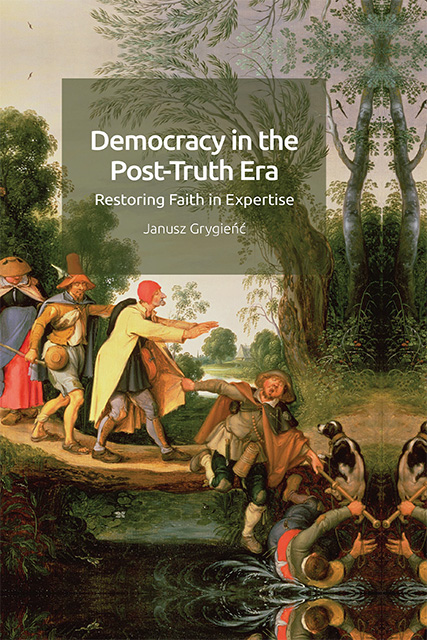Book contents
- Frontmatter
- Contents
- List of Tables
- Acknowledgements
- Introduction: Post-Truth and the Dawn of Illiberal Democracy
- Chapter 1 Expertise in Liberal Political Theory: Problems and Discrepancies
- Chapter 2 Expertise: Promises, Perils and Limitations
- Chapter 3 Laymen, Experts and Epistemic Dependence
- Chapter 4 Epistemic Dependence and Political Theory: Dependence Changes Everything
- Chapter 5 Inclusive Epistocracy, Competence and Popular Rule
- Epilogue: Living in a World of Too High Expectations
- Bibliography
- Index
Epilogue: Living in a World of Too High Expectations
Published online by Cambridge University Press: 18 October 2023
- Frontmatter
- Contents
- List of Tables
- Acknowledgements
- Introduction: Post-Truth and the Dawn of Illiberal Democracy
- Chapter 1 Expertise in Liberal Political Theory: Problems and Discrepancies
- Chapter 2 Expertise: Promises, Perils and Limitations
- Chapter 3 Laymen, Experts and Epistemic Dependence
- Chapter 4 Epistemic Dependence and Political Theory: Dependence Changes Everything
- Chapter 5 Inclusive Epistocracy, Competence and Popular Rule
- Epilogue: Living in a World of Too High Expectations
- Bibliography
- Index
Summary
The day of the plain man has passed. No criticism of democracy is more fashionable in our time than that which lays emphasis upon his incompetence. This is, we are told, a big and complex world, about which we have to find our way at our peril. The plain man is too ignorant and too uninterested to be able to judge the adequacy of the answers suggested to our problems … The plain man is simply obsolete in a world he has never been trained to understand. Either we must trust the making of fundamental decisions to experts, or there will be a breakdown in the machinery of government.
Some texts are difficult to date based on their content alone. Harold Laski's essay from 1931, from which the above quote is drawn, is doubtless a striking case in point. It could easily be a voice in today's discussion on the idea and limits of democracy.
Laski claims that there is an irremovable tension between expertise and democracy. On the one hand, effective decision-making requires reliance on expertise. A policy based on intuition or ideology must be cost-effective. On the other hand, Laski warns against infinite trust in experts, and for two reasons. First, the pride of experts, who invariably think of themselves as infallible, all too often leads to bad decisions. Expertise, he states:
breeds an inability to accept new views from the very depth of its preoccupation with its own conclusions. It too often fails to see round its subject. It sees its results out of perspective by making them the centre of relevance to which all other results must be related.
‘There is, in fact, no expert group which does not tend to deny that truth may possibly be found outside the boundary of its private Pyrenees.’ This attitude has a number of undesirable consequences. Above all, experts repeatedly overestimate their ability and fail to appreciate the importance of other disciplines and experts. The expert ‘unduly discounts experience which does not tally with his own’, ‘because he practices a mystery, he tends to assume that, within his allotted field, men must accept without question the conclusions at which he has arrived’.
- Type
- Chapter
- Information
- Democracy in the Post-Truth EraRestoring Faith in Expertise, pp. 156 - 166Publisher: Edinburgh University PressPrint publication year: 2023



